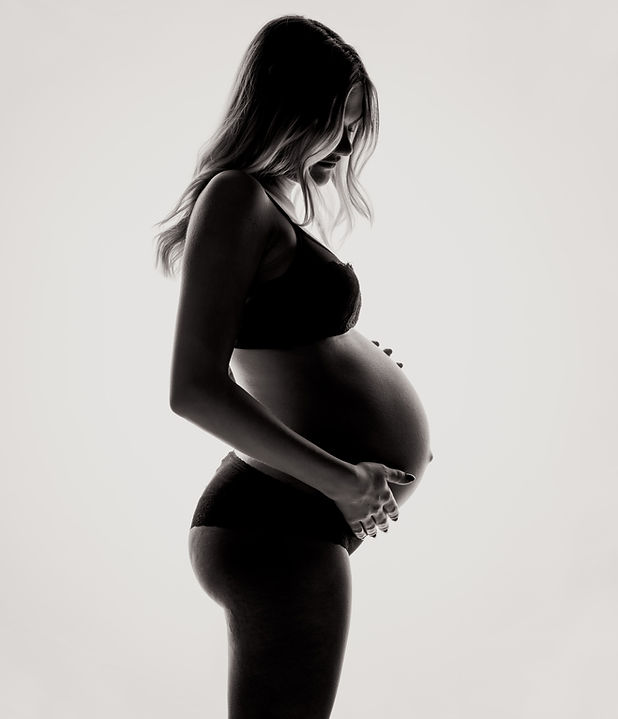

So, what on earth is HypnoBirthing?!
The term hypnosis probably conjures up images of people in a trance, acting like chickens on a stage? I'll admit I was initially a little sceptical about the use of hypnosis for childbirth, but now I believe every midwife, obstetrician and birth worker should be taught the logic and philosophy of the HypnoBirthing® program in order to transform the medicalised culture of birth in contemporary society. HypnoBirthing® is an evidence-based childbirth education program designed to teach families the essential coping tools to accomplish a fulfilling and calm birthing experience. It is best undertaken between 20 and 35 weeks gestation to effectively condition your mind to utilise your natural birthing instincts in order to have a safer, easier and more comfortable birth.
The HypnoBirthing® method integrates:
-
deep relaxation
-
self-hypnosis
-
visualisations
-
affirmations
-
birth education
-
specific breathing techniques
"After the birth of my first child left me feeling frustrated and disempowered, I was determined to educate and upskill myself throughout my second pregnancy. Meeting Mel and undertaking the Hypnobirth course provided exactly what I needed to take charge of my birth...

The benefits of HypnoBirthing:
-
Elimination of the Fear-Tension-Pain syndrome empowers mothers to give birth more comfortably, greatly reducing the need for epidurals whilst mitigating the classic "cascade of obstetric intervention" and caesarean birth.
-
Faster and easier thinning and opening phase of labour, lessening fatigue.
-
Reduced risk of pelvic floor damage (including pelvic organ prolapse, urinary incontinence and pain during intercourse) by avoiding prolonged, forced pushing.
-
Less likelihood of severe perineal tears due to education on the importance of perineal massage in the final trimester of pregnancy. Birthing women are also taught to relax their pelvic floor muscles and utilise the natural expulsive reflex during the birthing phase of labour.
-
Improved oxygen levels for baby during the birthing phase because blood is not redirected from the uterus to defense muscles, which is how fear physiologically effects labour due to the presence of stress hormones.
-
HypnoBirthing babies have higher than average APGAR scores, are alert and able to feed almost immediately.
-
Fewer pre-term and low birthweight babies.
-
High levels of endorphins in HypnoBirthing mothers decreases the need for induction (or augmentation) with synthetic oxytocin and enhances postnatal newborn bonding. Very few cases of postpartum depression are reported amongst HypnoBirthing families. Disturbingly, at least one in every five women experience perinatal anxiety and/or depression and one in ten birthing partners experience postnatal depression. The incidence of post traumatic stress disorder (PTSD) is also on the rise and can affect women following a traumatic birth and birthing companions witnessing a traumatic childbirth event.
-
Birth Better classes provide a safe, respectful and inclusive learning environment for all families.
-
Ongoing individualised midwifery guidance and nurturing upon completion of the program will help you confidently navigate the maternity care system, your pregnancy, birth and beyond!
-
Opportunity to attend a reunion with your fellow class participants following the birth of your baby.



What you will learn:
-
How fear creates a vicious cycle of tension which leads to labour pain. Fear is also one of the leading causes of traumatic birth.
-
To let go of all limiting thoughts and emotions surrounding labour, birth or parenting and learn to trust your birthing body.
-
How to perform self hypnosis, deep relaxation techniques and advanced labour and birthing visualisations.
-
Specific breathing techniques to be used during relaxation practice, surges (uterine contractions) and the birthing phase of labour.
-
How to perform light touch massage to stimulate the release of endorphins.
-
The importance of pre-birth and postnatal bonding.
-
A comprehensive nutrition guide for easier birthing.
-
The anatomy and physiology of an instinctive birth.
-
A series of Spinning Babies® exercises to improve comfort in pregnancy and optimise the position of your baby in preparation for labour. These techniques are designed to align the pelvis and uterus by untwisting uterosacral and cervical ligaments, and lengthening pelvic muscles.
-
The special circumstances that warrant immediate review by your care provider to ensure the wellbeing of the mother and baby.
-
Confidence to advocate for your birth choices and prevent your birth being intervened with unnecessarily.
-
Decision-making skills to work collaboratively with your care provider and ensure informed consent is obtained if obstetric interventions are required.
-
Birthing companions will learn exactly what to do and say during labour to best support their birthing partner.
-
How to enjoy a wonderful fourth trimester including breastfeeding guidance.

Further reasons to enrol:
-
The physical, emotional and psychological benefits of a gentle and joyful birth for mothers, babies and birthing companions can last a lifetime.
-
Knowledge is empowering but ignorance is definitely not blissful when it comes to giving birth in our litigious society today! Investing in a comprehensive birth preparation program will help you truly own your birth and mitigate the risk of a distressing birth experience.
-
In my role as a midwife I witness the aftermath of birth trauma (including physical birth injuries and/or severe emotional distress) firsthand and continually hear families express their disappointment about how their birth played out.
-
The financial burden of traumatic births can be enormous due to ongoing medical expenses for physical complications, psychological or psychiatric support and potential loss of income. Birth related trauma usually has a negative impact on relationships, especially if partners have been traumatised too. New parents may also have negative feelings towards their baby or feel detached from their baby following a difficult birth experience.
-
Literature has revealed that women's future fertility choices can be impaired by birth trauma as well.

